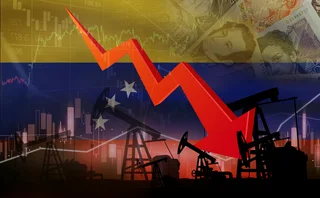Baltic Dry Index altered to boost derivatives trading
From July 1, the BDI will be calculated taking the average timecharter rate of each of the Baltic's capesize, panamax, supramax and handysize indices. Each vessel type's routes make up 25% of the BDI.
Mutual funds, hedge funds and traders have shown a considerable interest generally in exposure to dry bulk freight rather than in the very specific existing liquid derivative contracts according to Jeremy Penn chief executive of the Baltic Exchange.
"By re-selecting the index so that it consists entirely of components which are already relatively liquid in the derivatives market, we believe we are making this process considerably easier. It will enable market-makers to offer pricing and hedge resultant positions easily," he says.
Backtesting of the reselected index against historical data suggests a correlation of 0.99978 so existing usage of the index for econometric and freight market analysis will not be significantly affected.
The BDI is published every working day at 1300 (London) and is based on professional shipbroker assessments. The index is a barometer of the cost of transporting dry bulk commodities including iron ore, coal and grain by sea.
More on Risk management
Interest in battery and flexibility soars in European energy markets
Energy traders are structuring bespoke contracts around Bess and flexibility that facilitate new ways of managing and sharing risk in this nascent market
Interview: Abaxx’s Joe Raia on LNG, Corsia and wind contracts
Abaxx’s Joe Raia talks to Energy Risk at E-World 2026 about the performance of its LNG and Corsia contracts and its latest wind contracts
Axpo interview: the rise of flexibility contracts in European power
Axpo’s Domenico Franceschino talks to Energy Risk about flexibility contracts, battery optimisation and the role of risk management in valuing these bespoke products
Energy firms revisit CTRM systems as tech advances
Energy executives mull how to tap into the explosion of new technologies entering the risk space, but systems selection must consider future business needs, writes Yefreed Ditta at Value Creed
CRO interview: Brett Humphreys
Brett Humphreys is head of risk management at environmental markets specialist Karbone. He talks to Energy Risk about the challenges of modelling outcomes in unpredictable times and how he’s approaching the risks at the top of his risk register
How geopolitical risk turned into a systemic stress test
Conflict over resources is reshaping markets in a way that goes beyond occasional risk premia
Energy Risk Debates: the influence of risk culture
The panellists examine different risk cultures and discuss the risk manager’s role and influence in creating a risk culture
Energy Risk reaction: Venezuela and oil sanctions
Energy Risk talks to Rob McLeod at Hartree Partners about the energy risk implications of the US’s control of Venezuelan oil







